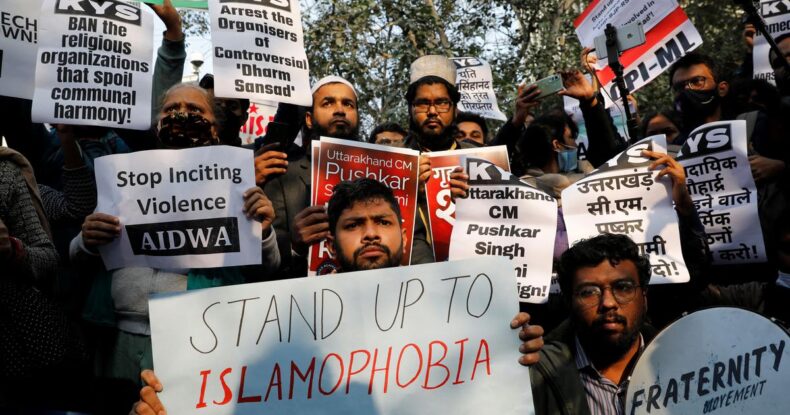The Centre tells the Supreme Court of its intent to amend the law to deal with the rising concern over hate speech, while the media is reminded to ensure self-regulation and unbiased reporting.

The Indian government has announced to the Supreme Court that it plans to amend laws to tackle the growing problem of hate speech.
The Additional Solicitor General of India, KM Nataraj, told a Bench led by Justice KM Joseph that the government is considering a separate amendment to the Criminal Procedure Code (CrPC) and that views of stakeholders have been sought regarding amendments to criminal laws. However, the Bench reminded us that ultimately it is for the parliament to decide.

When it comes to the media, Nataraj stated that TV channels are currently following self-regulation and that the government would not intervene unless something serious that affects national interest or security occurs. The Bench issued a notice on an application seeking to make all states parties to the case.
The Bench expressed disapproval of the way TV channels conducted their debates and criticized the News Broadcasters and Digital Association (NBDA) for failing to ensure the absence of bias. Justice Joseph commented that “everything is driven by TRP. TV channels are competing against each other.
They sensationalize things, serve an agenda…” He also questioned if the Indian audience was mature enough to watch such content and asked the NBDA counsel how many times they have taken off anchors.
Hate speech can be defined as any speech, gesture, conduct, writing, or display that may incite violence or prejudicial action against or by a particular individual or group, or because it disparages or intimidates a particular individual or group.
Hate speech can take various forms, including verbal or written attacks on individuals or groups based on their race, ethnicity, national origin, religion, sexual orientation, gender identity, or any other characteristic.

What is hate speech?
Hate speech is a serious problem because it can lead to discrimination, violence, and even genocide. It can also create a culture of fear and mistrust, making it difficult for different groups to coexist peacefully.
Hate speech can also lead to the erosion of civil liberties and human rights, as well as the erosion of the rule of law. Hate speech can also lead to the marginalization of certain groups, making it harder for them to access jobs, education, and other opportunities.
Hate speech should be banned because it can cause harm to individuals and groups and also undermine the values of a democratic society.
It can create a climate of fear and mistrust that makes it difficult for different groups to coexist peacefully. Hate speech can also lead to discrimination, violence, and even genocide. Moreover, it can undermine the values of a democratic society, such as freedom of expression, equality, and respect for human rights.
It’s important to note that there is a difference between hate speech and freedom of speech. Freedom of speech is the right to express any opinions without censorship or restraint and it is a fundamental right in a democratic society. However, hate speech is not protected under freedom of speech laws because it incites violence, discrimination, and prejudice against a certain group.
In conclusion, the Indian government’s announcement to the Supreme Court that it plans to amend laws to tackle the growing problem of hate speech is a positive step in the right direction.
The government’s commitment to ensuring that the rights of all citizens are protected and that everyone is treated with dignity and respect is vital for the functioning of a democratic society. The media also has a crucial role to play in this regard and should ensure that they are not part of the problem but rather strive to be part of the solution. It’s important to strike a balance between protecting freedom of speech while also ensuring that hate speech is not allowed to flourish. The ultimate goal should be to create a society where everyone feels safe and respected, regardless of their background or identity.












